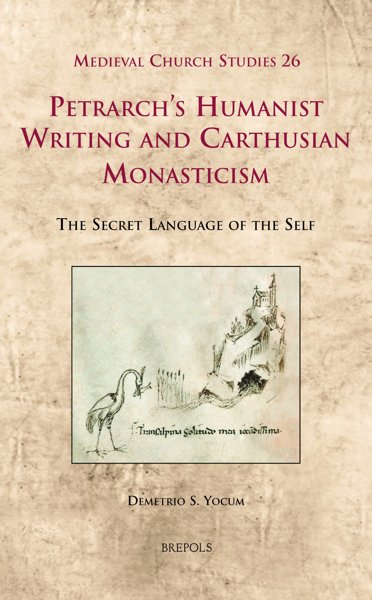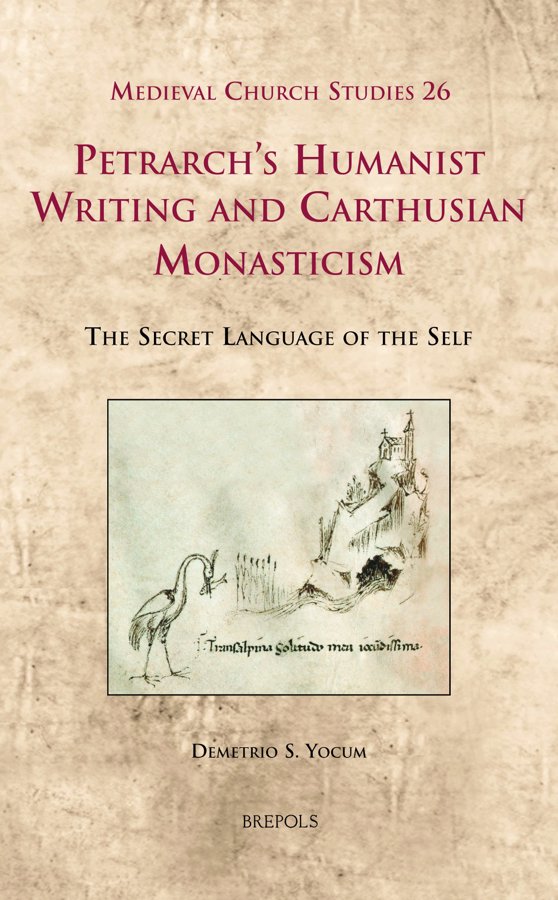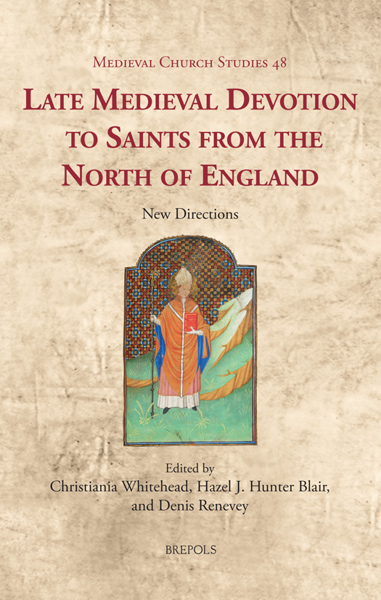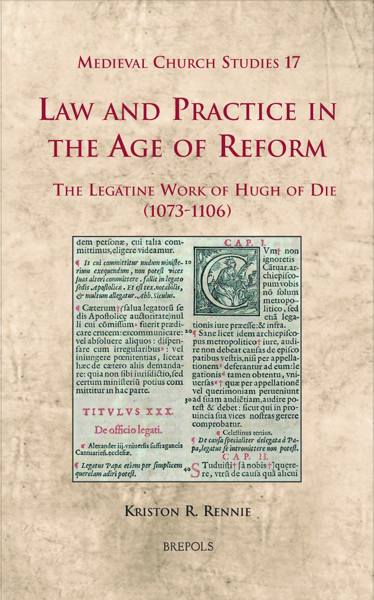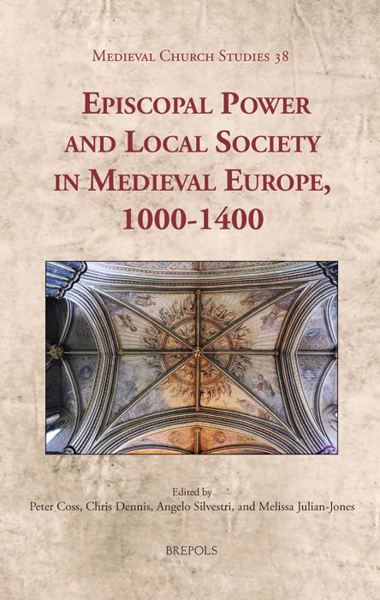
Petrarch's Humanist Writing and Carthusian Monasticism
The Secret Language of the Self
Demetrio S. Yocum
- Pages: 308 p.
- Size:156 x 234 mm
- Illustrations:30 b/w
- Language(s):English, Latin, Italian
- Publication Year:2013
- € 100,00 EXCL. VAT RETAIL PRICE
- ISBN: 978-2-503-54419-9
- Hardback
- Available
- € 100,00 EXCL. VAT RETAIL PRICE
- ISBN: 978-2-503-57227-7
- E-book
- Available
"Die Untersuchung macht (...) auf eine bestehende Forschungslücke aufmerksam: die Verbindungen der religiösen Orden zum Humanismus." (Coralie Zermatten, in: Sehepunkte, 14 (2014), Nr. 9 [15.09.2014], www.sehepunkte.de/2014/09/24998.html)
"Denso, convincente e connotato da una rara acribia capace di spaziare dalla fitta inchiesta filologica alle raffinate e pertinenti esplorazioni nell’ermeneutica moderna e postmoderna (…), il lavoro paziente di Yocum ha il merito di aver scavato in un andito ancora in penombra del multiforme animus del literatus toscano attraverso una disamina elegante e solida che sarà imprescindibile vademecum per chi voglia a pieno intendere la variegata polisemia dell’universo petrarchesco." (Olimpia Pelosi, in: Annali d’Italianistica, 32 (2014), http://www.ibiblio.org/annali/2014/bookshelf_2014.pdf)
English translation:
"Dense, compelling, and characterized by a rare and rigorous accuracy capable of varying from extensive philological investigations to refined and relevant explorations in modern and postmodern hermeneutics (…), Yocum’s scrupulous work has the merit of shedding light on a rather obscure aspect of Petrarch’s multifaceted personality through an elegant and robust examination that will be indispensable for anyone who wants to fully understand the varied polysemy of Petrarch’ universe."
"The author convincingly demonstrates the influence of Carthusian spirituality on Petrarch and consequently its significant role in Renaissance humanism. The chapters are excellently documented from both primary and secondary sources. Particularly impressive is Chapter 5. (...) the book can be recommended to libraries with strong holdings in medieval religious history, Italian literature, and Carthusian spirituality." (James Hogg, in: Analecta Cartusiana, 312, 2015, p. 49)
"(...) Yocum’s journey through Petrarch’s carthusianism presents itself as a wonderful invitation to scholars of humanism to reflect on Carthusian roots; to Carthusiasts to rethink humanist fruits; and to intellectuals in general to reread their own selves when reading humanist and monastic sources." (Krijn Pansters, in: Aevum. Rassegna di Scienze storiche, linguistiche e filologiche, 89, 2015, p. 167-168).
"The book has an informative bibliography and index, and textual examples are presented in original with in-text translations throughout, providing smooth and enjoyable reading. Yocum’s work addresses Petrarch in a valuable way, addressing ideas of medieval personal space and identity in the context of humanist intellectual and spiritual movements that influenced Renaissance thought and culture." (Stephanie L. Hathaway, in: Parergon, 31.2, 2014, p. 236-237)
"It cannot be denied that this volume yields some interesting insights. Equipped with an exhaustive knowledge of fourteenth-century monasticism, Yocum manages to tease out a number of subtleties that have previously escaped notice." (Alexander Lee, in: Renaissance Quarterly, 67.3, 2014, p. 1068-1069)
"Dementsprechend hoch ist die Bedeutung von Yocums Studie zu veranschlagen, behandelt sie somit doch letztlich die Definition von Petrarcas Humanismus insgesamt auf Basis einer interdisziplinäre Aspekte berücksichtigenden Vorgehensweise. (...) Die Untersuchung des kartäusischen Einflusses auf Petrarca erweist sich also tatsächlich als äußerst aufschlussreich bezüglich des Gesamtverständnisses seines Humanismus." (Matthias Bürgel, in: Romanistisches Jahrbuch 66, 1, 2015, p. 202-208)
"L’a. dévoile dans cet ouvrage un aspect inédit de l’humaniste et du poète : l’intériorité, la pratique de la lecture et de l’écriture mènent à l’oubli de soi et à la rencontre espérée avec le divin, mais sans négliger les difficultés de ce chemin spirituel « qui monte quand il croit descendre et qui descend quand il croit monter ».” (Chr. Van den Bergen-Pantens,in: Scriptorium 2015-1, p. 50)
The fourteenth century saw an exponential rise in charterhouses across Europe. During this period of growth, the cloister walls protecting the silence and solitude of the relatively small and isolated semi-eremitical Carthusian houses became more porous, pliable, and open to the outer world. Although still considered at the forefront of Christian piety and asceticism, the Carthusians began to be more clearly identified with their newly acquired taste for the arts, literature, and architecture. Gradually, charterhouses became major humanist centres attracting sophisticated patrons, artists, and scholars.
Of the long line of renowned anti-scholastic intellectuals who were attracted to Carthusian circles, Petrarch was undoubtedly the first. By revealing the Carthusian imprint on Petrarch’s thought as well as elements of Carthusian spirituality present in his texts, this book argues that Carthusianism was an essential component of Petrarch’s Christian humanism and hermeneutics of the self. An interdisciplinary approach, involving parallel readings of Petrarchan texts, early monastic and Carthusian primary sources, together with more recent theological reflections, offers new insights into the role of Carthusianism in the intellectual debate on spirituality and the position of the individual within this order. Through Petrarch and his literary works, the Carthusian milieu ultimately shaped not only Renaissance humanism but also our understanding of the relationship between ‘self’, God, and others.
Foreword
Acknowledgements
Note on Names, Citations, Translations, Bibliographical Forms, Abbreviations
Chapter 1. Introduction: Petrarch and the Carthusians
Chapter 2. Rethinking Solitude: The Practice of Solitude and Silence in Petrarch and Carthusian Spirituality
Chapter 3. Rethinking Otium: Cultivating Soul through Soil
Chapter 4. Rethinking Liturgy: Petrarch and the Laicization of the Carthusian Liturgy
Chapter 5. Rethinking Reading and Writing: Petrarch and the Carthusian Practice of Silent Preaching
Chapter 6. Conclusion: Petrarch’s Humanism and the Practice of Kenotic Writing
Bibliography
Index
